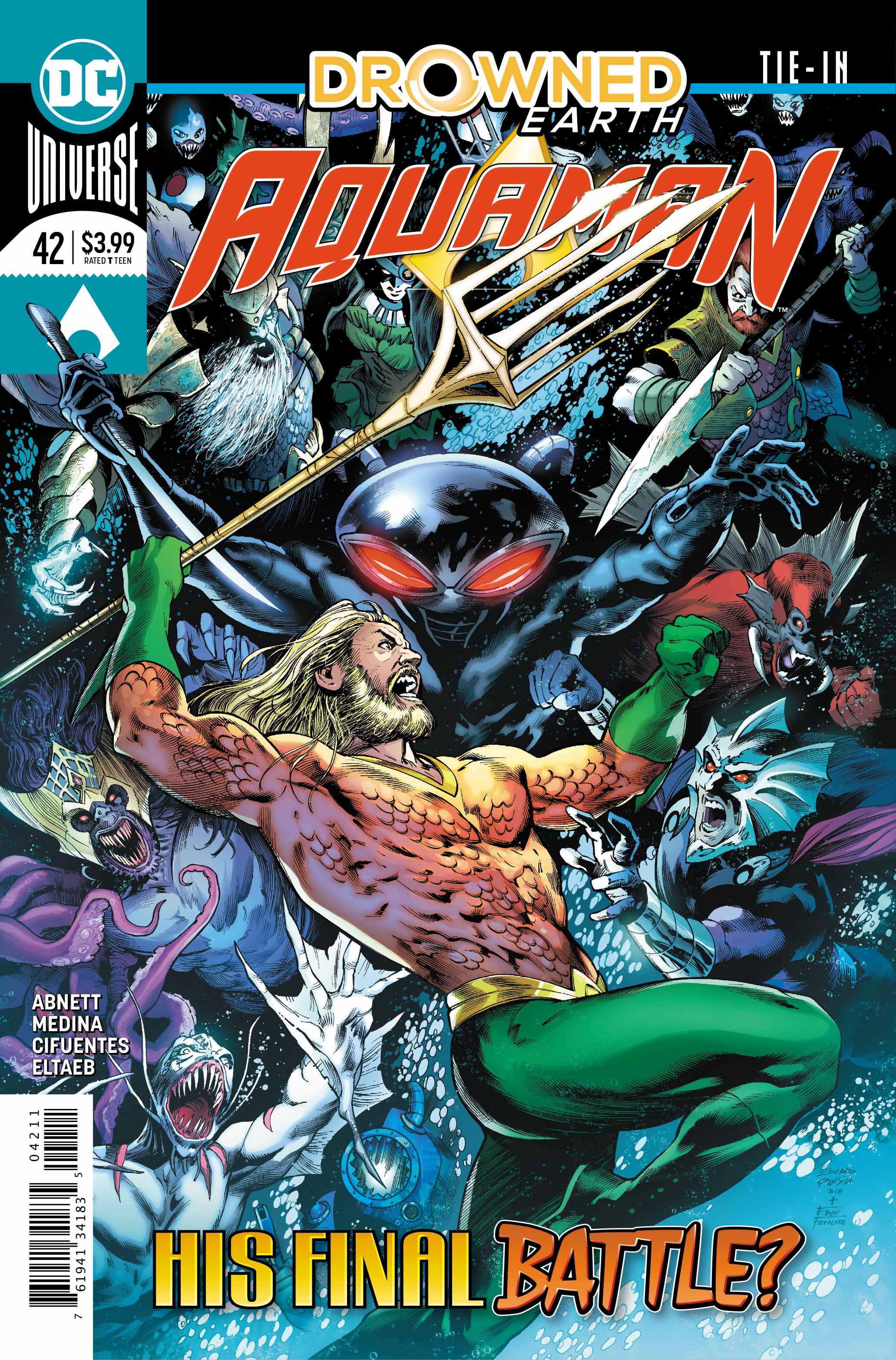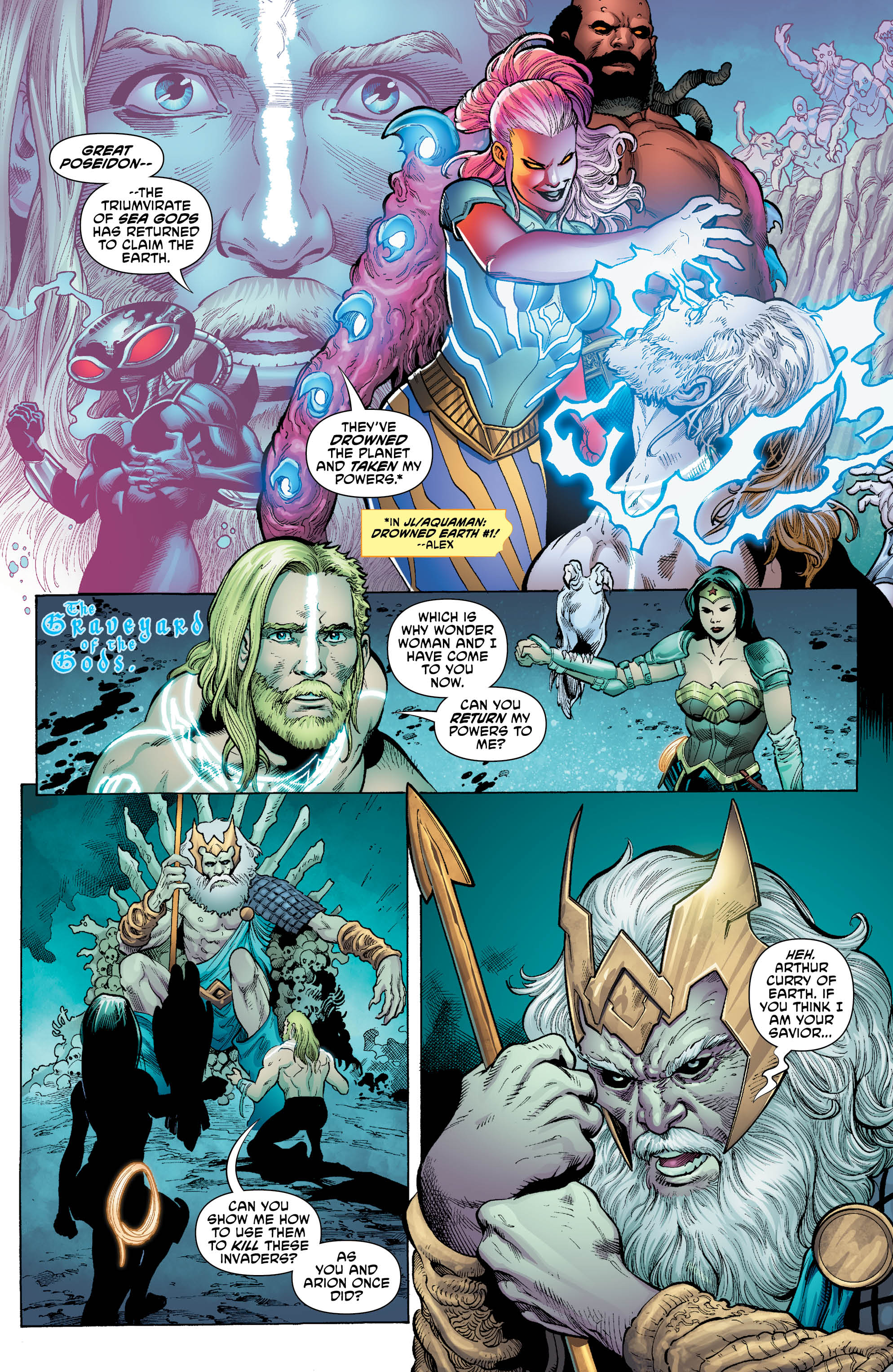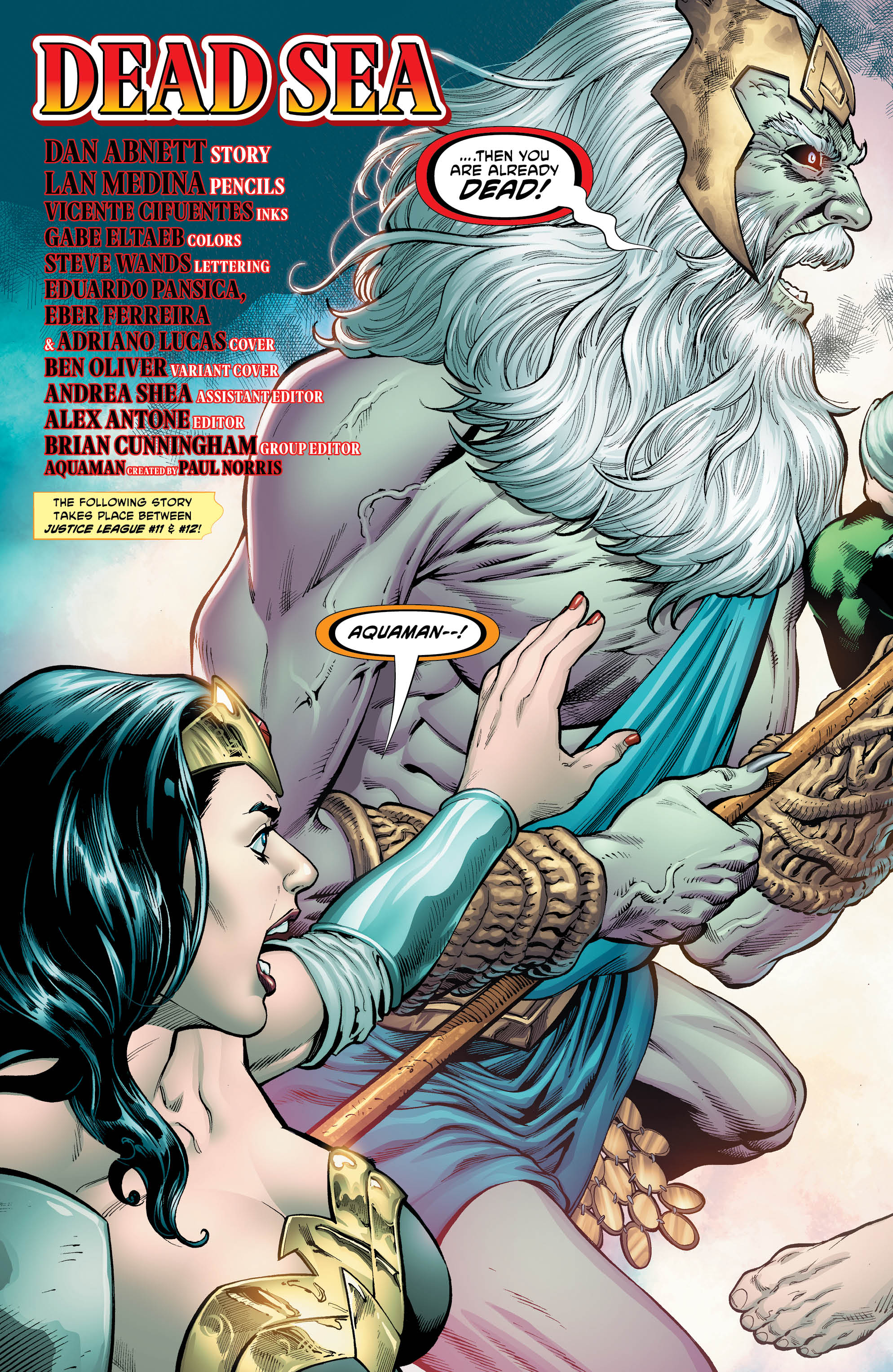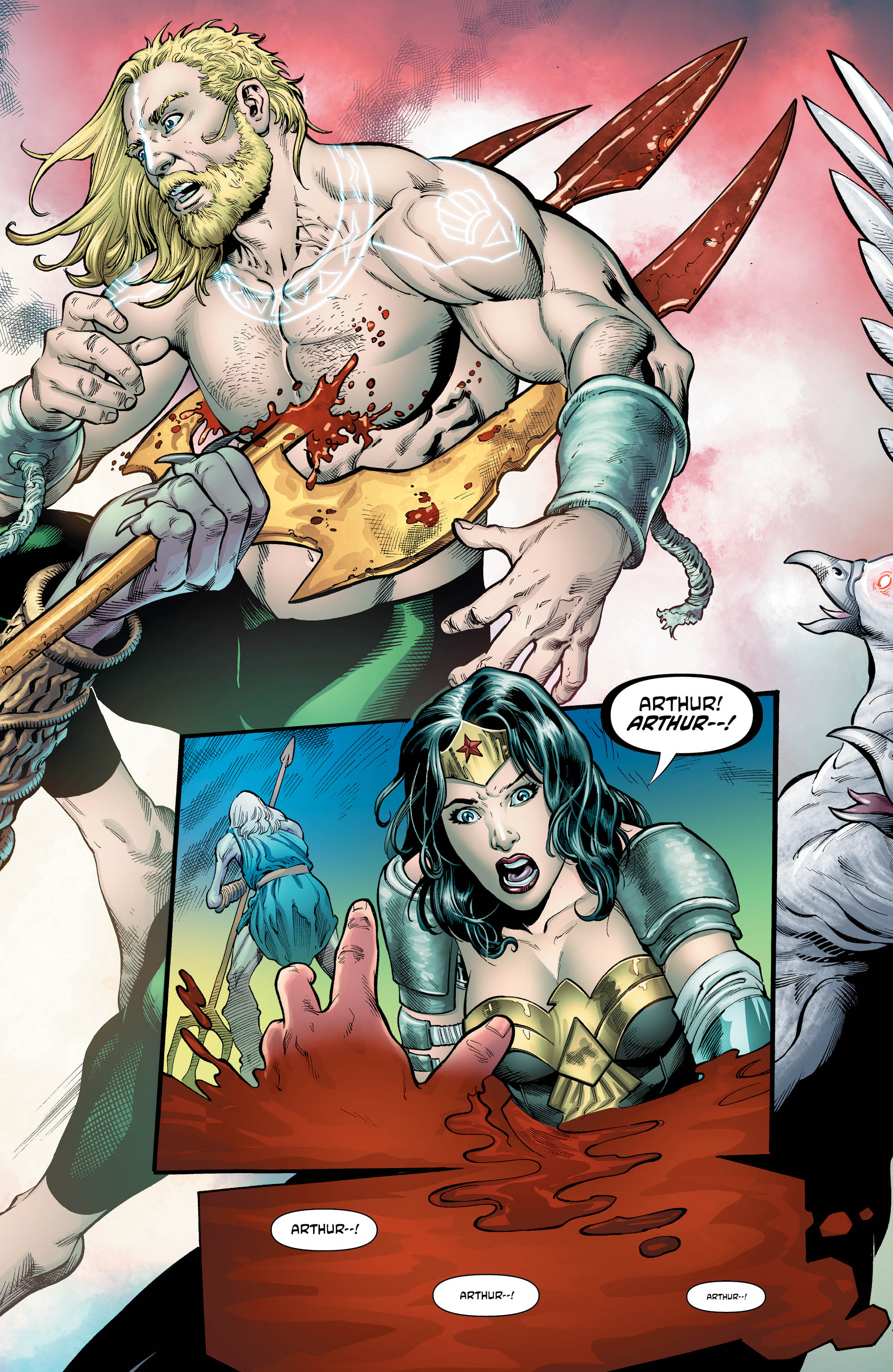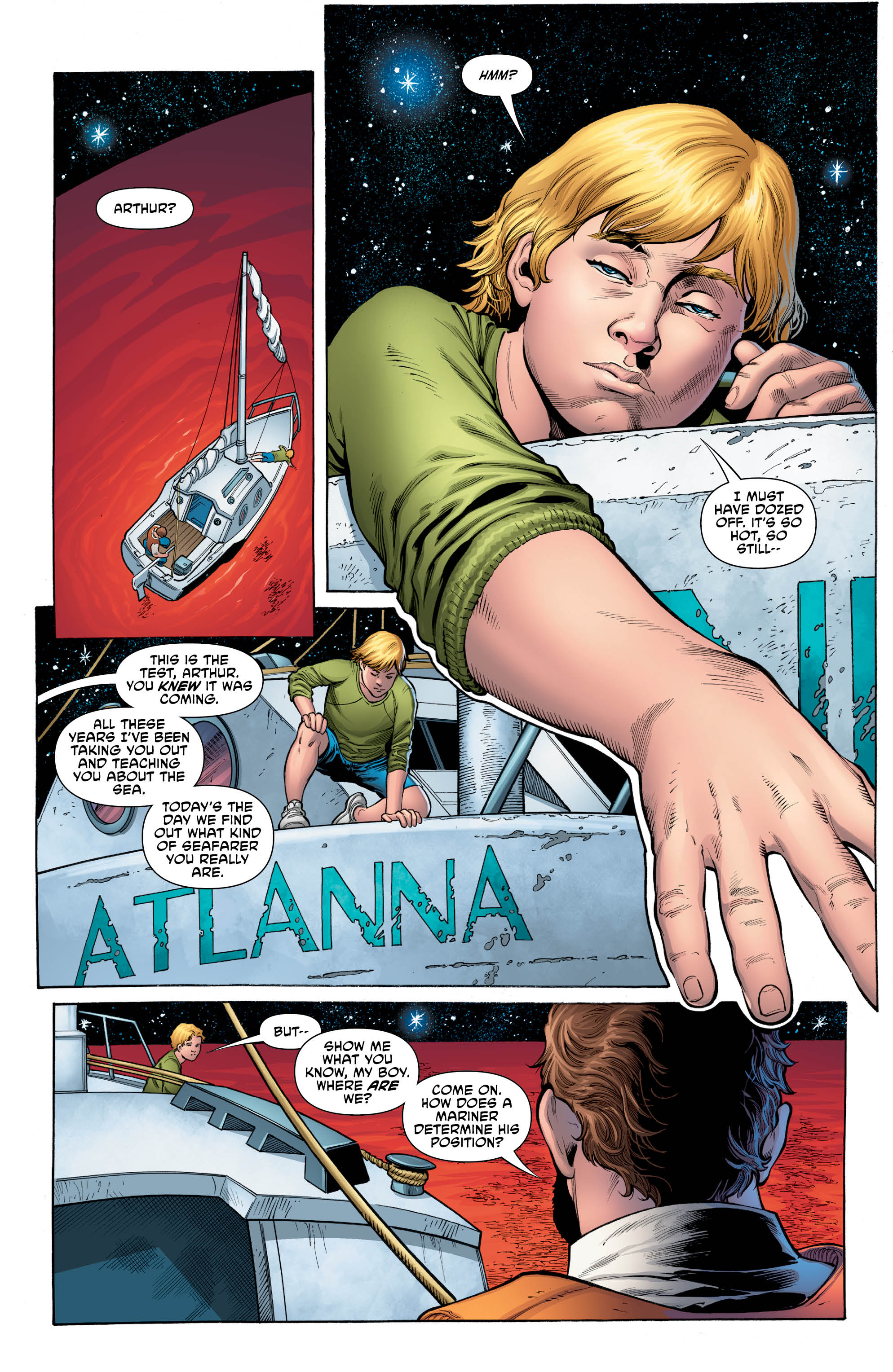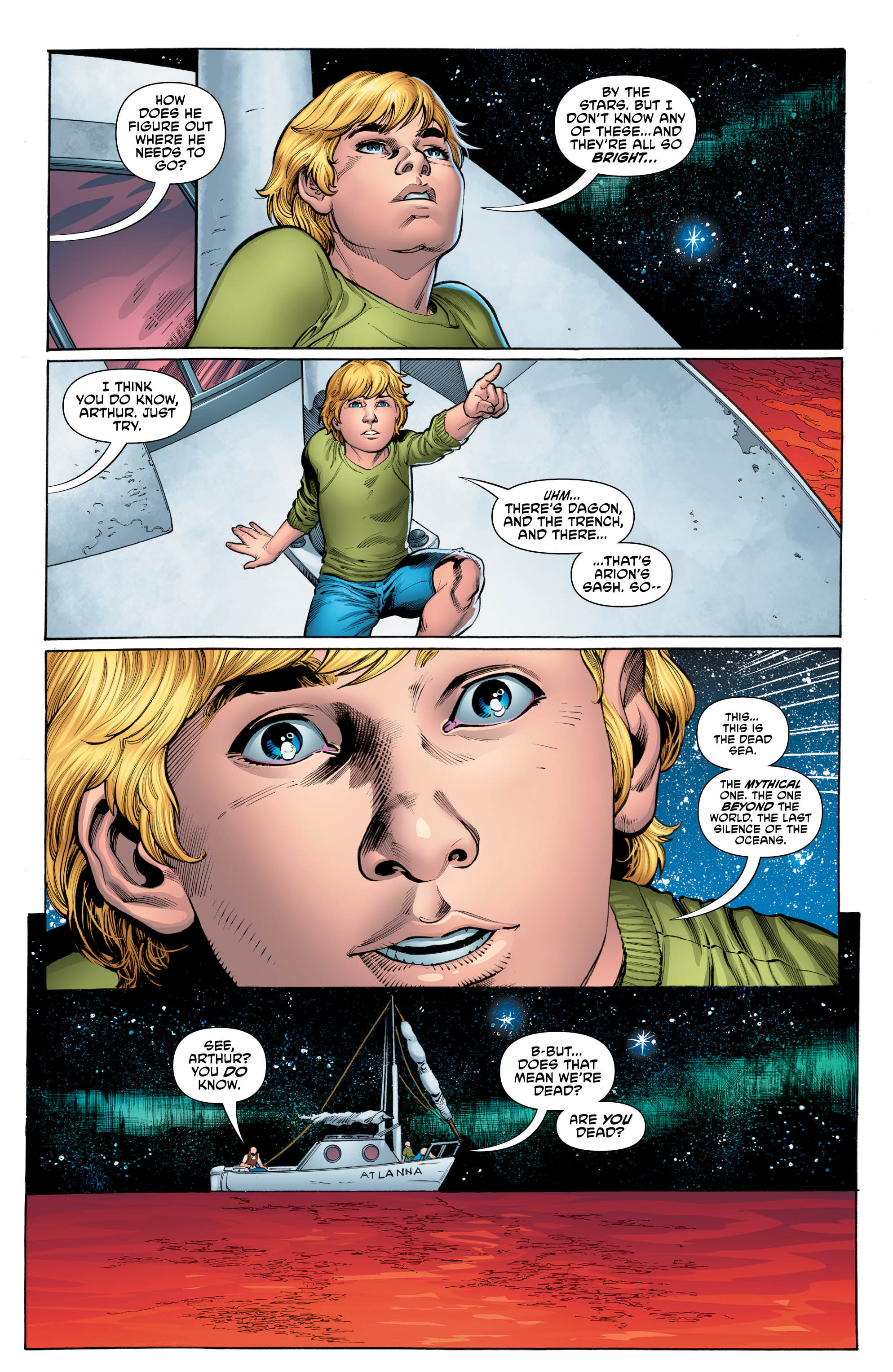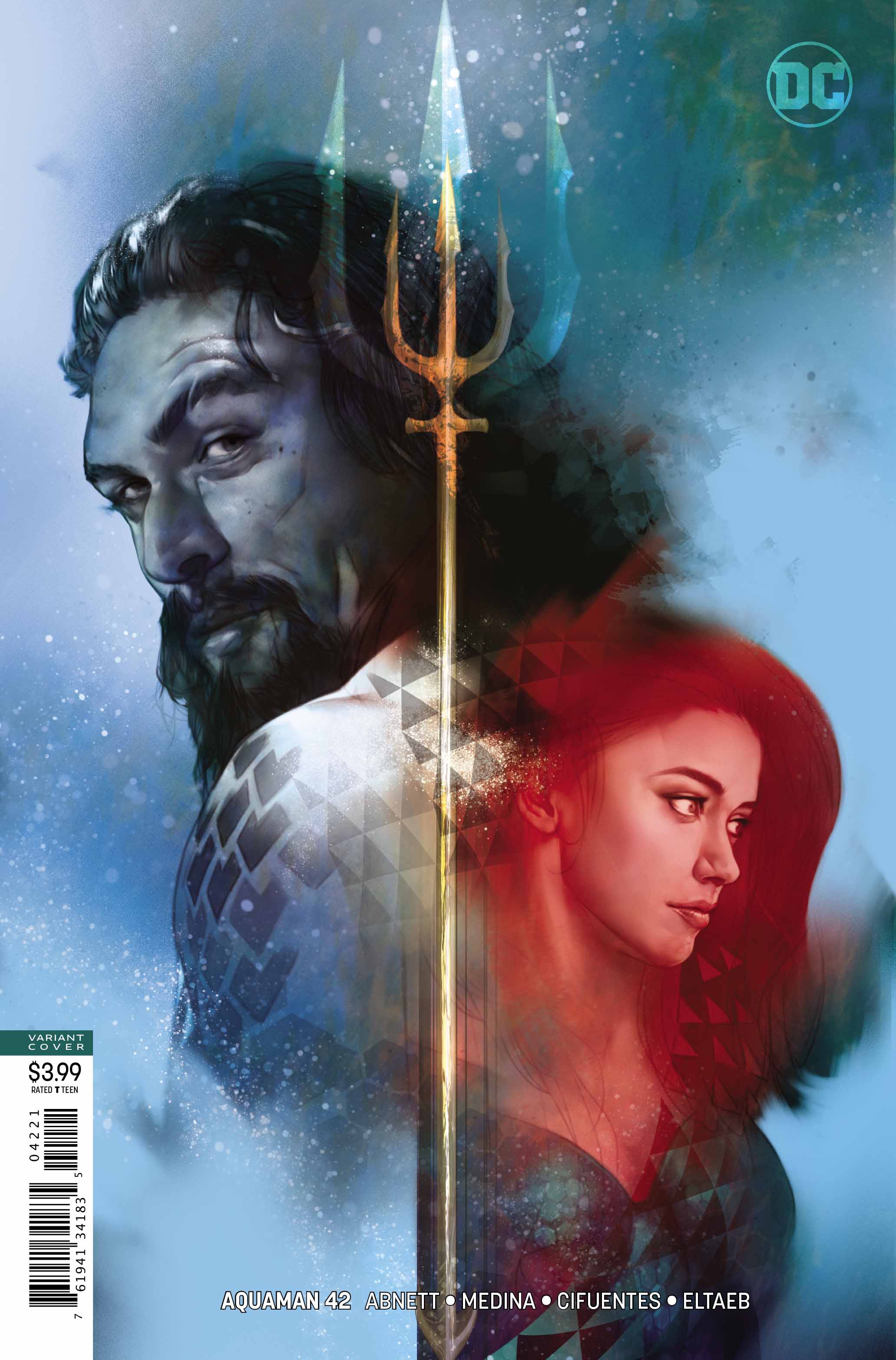Aquaman: The End of an Era
Dan Abnett talks about bringing the Rebirth era of Aquaman to a close for DC Comics with Aquaman #42.
Dan Abnett took over the writing chores of Aquaman during the tail end of the New 52 era of DC Comics. Starting in 2016, Abnett became one of the few DC writers to bridge the New 52 and Rebirth eras. And with good reason, because in the pages of Aquaman, Abnett was weaving a George R.R. Martin-esque tale of betrayal, adventure, romance, horror, and heroism. The Rebirth Aquaman series took a deep dive into the heroic psyche of Arthur Curry and presented one of the most compelling runs in the history of the character, redefining Mera and introducing new adversaries and allies along the way.
Now, one the eve of Abnett’s Aquaman run coming to an end, he discusses he take on Atlantis, his amazing work on Mera, and… Jabberjaw?
Den of Geek: What was your initial idea that got you the Aquaman writing gig?
Dan Abnett: In broad terms, it was about returning Aquaman to his core as a character, returning continuity to the very nice tone Geoff Johns had established during his run, making more of Mera – who I recognized as a seriously underused character in the DCU – and really, I suppose, examining Arthur’s role as a man of two worlds, as a creature of the shore, caught between land and sea. I wanted to build out his supporting cast and his rogue’s gallery. And I wanted to attack head-on his bad rep in general popular culture as the “lame” superhero, the epitome of “silly super heroics.”
further reading: Aquaman Review
You were one of the few creators that carried over from the New-52 era to the Rebirth era, talk about how the decision was made? Why was Aquaman one of the few titles that stayed as is?
I did, on both Aquaman and Titans. I think it helped my runs on both had just started, though I guess they must’ve liked me. For Titans, it was pretty straightforward – I simply truncated to 8 issues what I had been doing in Titans Hunt and used the return of Wally as the springboard for the new ongoing.
For Aquaman is was slightly tougher…Rebirth Aquaman had to start with a big “recapitulation” of what he was and where we were going, and we’d just DONE that. The continuity wasn’t shifting…Aquaman wasn’t considered “broken” and in need of refreshing. So, I had to relaunch on a strong beat that re-achieved what I’d only just achieved, a new statement of intent that I framed with the Atlantean embassy on land, the return of Black Manta, and the threat of Nemo.You had a brief stint on Aquaman in 1998, did anything carry over into the modern run? Themes? Character beats?
Not so much. The book was pretty different then. That brief stint was almost an audition, and they ended up turning to a bigger name for the book. What really did carry over was my interest in the character. I felt there was huge potential. I’ve always loved “cosmic” superheroes, and with Aquaman I felt there was a great thread of “fantasy” superhero (in terms of genre), which could be built up with the same serious intent at world building as a cosmic book.
Who is Aquaman to you, and despite all the jokes and misconceptions about the character, why has he endured?
I think what’s “wrong” with him as a character in popular thinking (he’s a silly, fish-talking mermaid guy and not a “serious” superhero – thanks, Adult Swim, Big Bang Theory, etc.) is the very thing that makes him strong “in-Universe” and makes him interesting to write. He is fundamentally misunderstood and pre-judged. He’s feared as a bit strange and goofy.
further reading: Grant Morrison Returns to the DC Universe
The reality is this noble, passionate, dedicated, and frankly scary and powerful hero. Playing with that contrast, with the preconceptions, is huge fun. I see him in the DCU as experiencing exactly the same attitudes as the comic character in the real world, and I deliberately shifted that attitude into the book. As I said, he’s a man of two worlds, passionate about land and sea, aware of his own divided self and divided loyalties. His home – the lighthouse – perfectly symbolizes him: he stands on the shore between water and dry land, watching over both.
Now that it’s over, what was the arc you guided Aquaman through? What were you hoping to accomplish with the character?
It started out very political. Aquaman isn’t just a superhero, he’s a king. A nation depends on him. I wanted to examine that and look at the incompatibilities between the two roles. Can you be a monarch and a hero? That carried on all the way through, and ran alongside the “rise” of Mera, who was born to rule but didn’t much want to. I guess it was about how you can’t always meet your responsibilities, because they might actively clash. But it’s the trying that counts.The word “epic” gets thrown around a lot and at inappropriate times, but your run was truly epic. Talk about the world building you did in Aquaman.
I wanted to make Atlantis (and by extension Xebel and the entire undersea world) as well-realized and credible as possible, not just a “toy castle at the bottom of a fish tank.” I wanted there to be a society, lots of characters in the Atlantean court, and intrigue too. I wanted to name things and create credible terms for things and show that Atlantis was a huge society where there were different schools of thought, that not everyone agreed. I wanted to make Atlantis one the key characters in the book and, by “Underworld” I think that was happening.
Obviously Geoff Johns was a huge influence on the book. Can you talk about any collaboration with Johns you might have had in realizing your Aquaman?
Geoff was great. We talked about things a lot. I felt he’d got the basic balance right and wanted to be true to that…but it was also a slight hindrance (I’m sure he won’t mind me saying so) in that there were things he still wanted to do with the character, and thus whole areas I felt obliged to avoid and “leave” for him. I guess that made me particularly inventive in terms of where I went and what I created.
Other than Johns, who were some literary influences on the high fantasy aspects of your Aquaman? I heard your Aquaman being compared to Game of Thrones many times. I guess so, in the dynastic intrigue. Frank Herbert’s Dune more so, in terms of intrigue and of building a rounded culture based on a specific quality. All sorts of things, really. It may sound arrogant, but I guess I also looked to the things I’d done on cosmic series, like Guardians of the Galaxy, trying to create a credible “non-terrestrial” society that was curious and enticing.
Talk about Brad Walker and some of your other artists. What were some artistic highlights for you?
Every artist was great. Brad was fantastic (I knew that in advance because of our time together on Guardians of the Galaxy), but in that first year we were double-shipping, and we were obliged to tag-team the art just to keep ahead. Brad worked alongside Scott Eaton and Philip Brionnes and they each did superb work, seamlessly. In the later stages, Stjepan Sejic did amazing work, and then was followed by the extraordinary art of Riccardo Federici and Robson Rocha (and you know what that led to for Robson!). All of them incredible, and vital to the strength of the book. I also, for one guest issue, got to write for Kelley Jones, whose work I have admired since always. That was a surprise and joy, and I was delighted to learn he really loved doing it. Did you scratch your Aqua-itch, or do you have any more to say about Aquaman and his world?
Kinda. I love the character very much, and am happy to go out on such a high with such a big story, but there’s always room for more, right?
I think your highpoint was your work on Mera. I adored her mini-series. How did that project come about and what were you hoping to accomplish?
I always felt Mera was an underused character, the “most underappreciated,” overlooked character in the DCU. She had to have a big role, her personality demanded it. I wanted to elevate her in peoples’ minds. To that end, I got her a place on the Justice League (at long last), and then got to explore her background in the limited series, which was a fantastic project – and her first time as a lead character ever. I’m pretty proud of my work on her as a character and the greater exposure she got.
Which Aquaman rogue did you most enjoy writing?
Probably Corum Rath. But writing Black Manta and Ocean Master were also very satisfying things to do. Then there’s Dead Water…
What are you most proud of in regards to your run?
The big stories, of course. The role of Mera. But mostly the chance to write a book in an unbroken run that lasted fifty issues (allowing for pre-Rebirth and Mera). That’s rare in this day and age, and it was great to have that creative room and keep the audience with me. It’s a distinct and sustained era for the character’s history. That makes me proud.
Of course, we can’t ignore the 600 pound shark in the room. Jabberjaw? How the heck did that awesome project come about?
Well, there’s this crazy guy called Dan Didio… I was asked. It was too much of a WTF project to turn down, especially when I realized I could, essentially, keep Aquaman “in continuity” despite the insane premise.
Were you consulted at all on the Aquaman movie?
No. I guess we’ll see if they read any of my run.
In regards to Sub-Mariner, Joe Quesada once said it’s hard to get a reader to relate to Namor’s world because it’s difficult to ground a character who is surrounded by guards with crab shields, etc. How did you ground your Aquaman and balance the relatable with the fantastic?
Joe also told me (repeatedly) “I don’t get cosmic” during my Guardians of the Galaxy run, so… I write a lot of SF and Fantasy (in novels, in 2000AD). I love it. I really love blending those genres with the superhero genre, so it was a gift for me. You’ve always got to do it with complete conviction, with a straight face (no matter the in-story humor). You’ve got to believe in the world you’re depicting with utter commitment and try to make it as engaging and authentic as you can. I wrote to make people believe, crab shields or no crab shields.
Aquaman is one of the few characters that fits into a fantasy and a super hero setting. How did you find the balance between high fantasy and traditional super hero adventure?
See above. Sometimes I think an SF of Fantasy setting actually helps to ground a superhero. Real world superheroes work superbly well, no question, but that’s the core of the trope. In an SF or Fantasy setting, they can become more mythical – less “larger than real life,” more part of a fantastical construct. There’s no reason to believe in them any less.
Any words of farewell to King Arthur?
It’s been wild and I’ve loved it. I’ve appreciated the epic opportunity and hope I’ve acquitted myself well. And there’s always the next time…
What characters would you like to tackle next at DC?
I really love the core characters, many of whom I’ve written now and then: Superman, Batman, Wonder Woman. I’d love to take a swing at Green Arrow, and I love DCU magic, so Zatanna and John Constantine. But I may just have landed my perfect, dream, tailor-made-for-me project, so watch this space…
Aquaman #42, the conclusion of Dan Abnett’s tenure as writer on the book, arrives on Nov. 21. Check out these exclusive preview pages!
